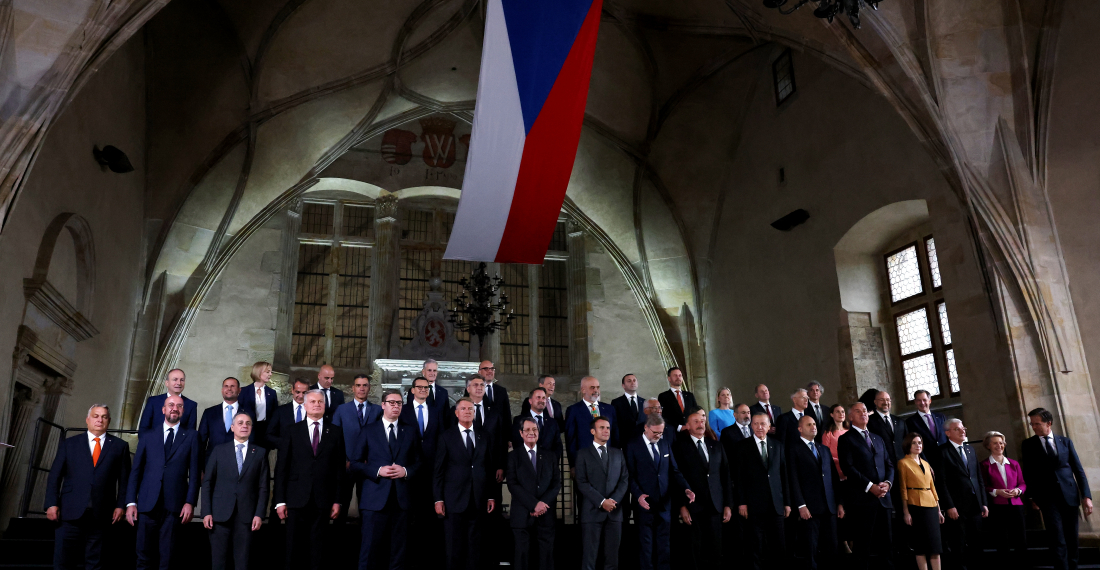In the historic settings of Prague Castle, leaders from across Europe gathered on Thursday for the first summit of the European Political Community.
Apart from the leaders of the 27 EU member states, leaders from non EU member states are also attending, including Albania, Armenia, Azerbaijan. Bosnia and Herzegovina, Georgia, Iceland, Kosovo, Liechtenstein, Moldova, Montenegro, North Macedonia, Norway, Serbia, Switzerland, Turkey, Ukraine and the United Kingdom
With the dramatic consequences of Russia’s aggression war, EU leaders agreed during the European Council meeting in June 2022 to launch the European Political Community with the aim of bringing together countries on the European continent. The ambition is to bring leaders together on the European continent and to foster their cooperation on issues of common interest, revolving around peace and security, the economic situation, energy and climate, and migration and mobility. No formal written outcome of the European Political Community is envisaged.
After the traditional family photo, the meeting kicked off with a round table discussion on peace and security in Europe.
This story will be updated throughout the day.






